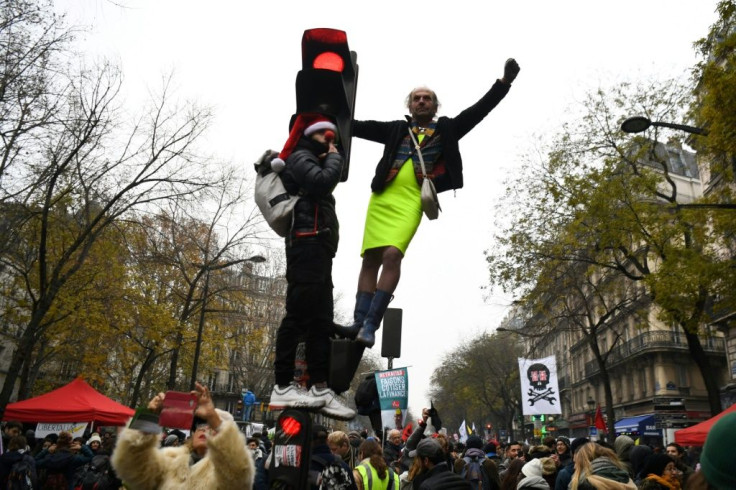France's Pension Reform: What Would Change?

French labour unions have vowed a wave of strikes against a pension overhaul promised by President Emmanuel Macron, a centrepiece of his drive to reform vast swathes of the economy.
Previous governments had already increased the number of years of work required to receive a full pension, but Macron's reform would replace dozens of separate systems with a single and entirely new regime.
Macron says the current system is too complicated and discourages labour mobility, and could be facing a deficit of 17 billion euros ($19 billion) by 2025 if nothing is done.
The government is to unveil details of the plan next week, but here are some of main elements that have been presented to union leaders during negotiations in recent weeks.
France's current system is one of the most generous in the world, with private-sector employees eligible for pensions based on their 25 best years of salary -- in the public sector, pensions are based on their last six months of salary.
On average, pensions are 75 percent of workers' pre-retirement earnings, compared with an OECD average of 58 percent.
It is a defined contribution system, meaning pensioners get a guaranteed amount based on their earnings over their careers.
People born in 1973 or later must work a total of 172 quarters, or 43 years, for a full pension.
The official retirement age is 62, but people who quit without enough quarters will see their pensions reduced.
On top of the main system is a compulsory top-up regime that uses a points-based scheme, where points are accumulated based on salary and converted into pension payouts at retirement.
However there are also 42 "special regimes" for a range of workers including civil servants, dockers, lawyers, and employees of state rail operator SNCF and the Paris public transport operator RATP.
They provide for earlier retirement and more advantageous pensions originally offered as compensation for arduous work.
As a result, the average French person retires at 60, three years earlier than elsewhere in Europe, and four years before the average for wealthy nations in the OECD.
Public spending on pensions represents 14 percent of GDP -- only Greece and Italy spend a higher proportion in Europe.
During his 2017 presidential campaign Macron promised to implement a "universal" system that would do away with the special regimes.
A points-based system would be applied to everyone, which Macron said would ensure that "for each euro contributed, everyone gets the same pension rights."
"We won't touch neither the retirement age, nor pension amounts," he said in his campaign manifesto.
Yet the single system would allow for adjustments down the road which would enable the government to reduce deficits as the population ages and people live longer after retiring.
The government has vowed to implement the system gradually, so as not to impact older workers.
It has been negotiating with unions since August, but only the moderate CFDT, the largest private sector union, backs the idea of a single system -- as long as the official retirement age of 62 is not touched.
The hard-line CGT and Force Ouvriere, more dominant among public-sector employees, has denounced a plan they say will effectively force millions of people to work longer or face curtailed benefits.
© Copyright AFP 2024. All rights reserved.





















